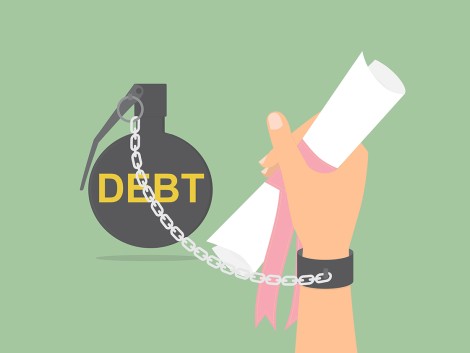Do you have student loans? Watch out for scams related to student loans! Scammers are out there trying to find their next victim and that could be YOU. It is important to know what to look out for regarding your student loans.
The U.S. Department of Education recently announced another extension of the student loan payment pause, which runs through August 31, 2022. Scammers see this as a great opportunity to take advantage of those with student loans. You may find yourself confused as to what is going on with your student loans, such as debt relief, student loan forgiveness programs, payment plans, when to start paying, and more.
To steer clear of a student loan forgiveness scam, know this:
- There are specific federal loan forgiveness programs. Some examples include the Public Service Loan Forgiveness (PSLF) and the Teacher Loan Forgiveness program. If you have questions about qualifying for student loan forgiveness, contact your loan servicer or the Department of Education directly.
- Don't share your FSA ID. Scammers may claim that they need your FSA ID to help you, but DO NOT share this information with anyone. They could get into your account and steal your identity.
- You don't need to pay for help. There's nothing a company can do that you can't do for yourself for FREE. Never PAY an upfront fee for help.
- Scammers can fake a government seal. To know if the government is actually contacting you about your student loans, contact the Department of Education directly here and they can verify the information.
- Only scammers promise fast loan forgiveness. A federal student loan forgiveness program for all borrowers is not in effect. Scammers might promise a loan forgiveness program that is QUICK. This is a sign that you are being scammed.
If there is eventually a broader student loan debt forgiveness plan, the official word will come from the Department of Education, NOT from random calls, texts, emails, or social media messages.
Any other information about your student loans, such as if they decide to extend the student loan payment pause again, will be announced by the U.S. Department of Education.
If you have any questions about your student loans, please contact the U.S. Department of Education or your loan servicer directly. If you see, hear, or are a victim of a scam, contact First Citizens and/or the Federal Trade Commission (FTC).
We’re here to help! Visit our webpage to stay up to date with the latest fraud and scams.


